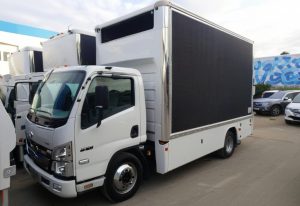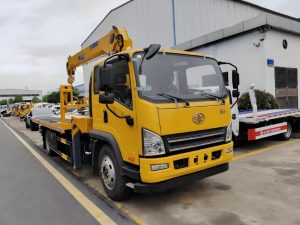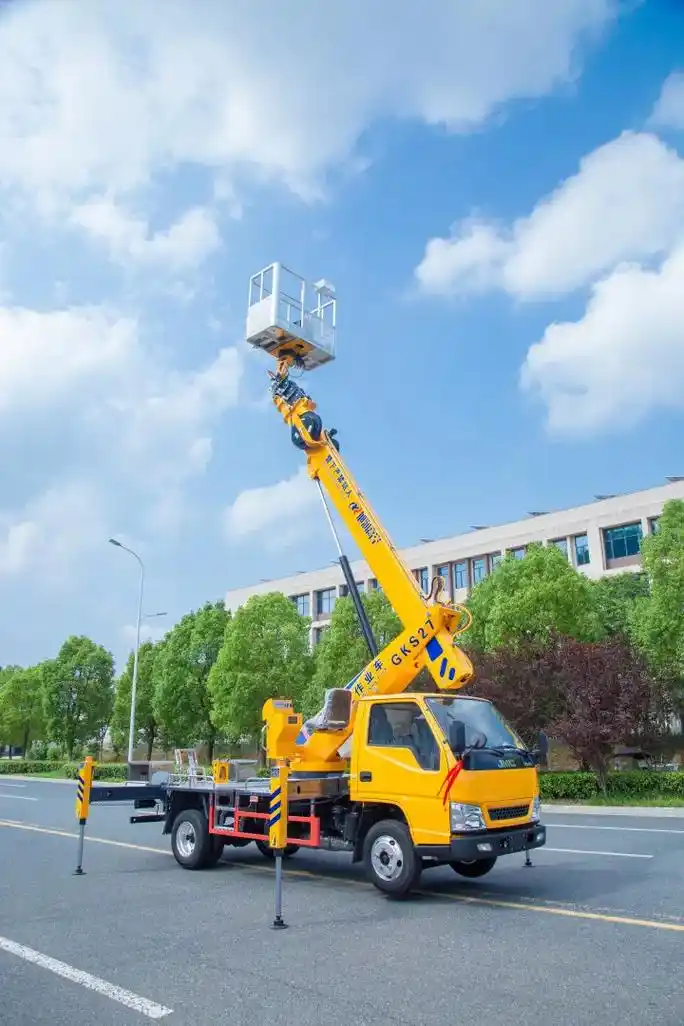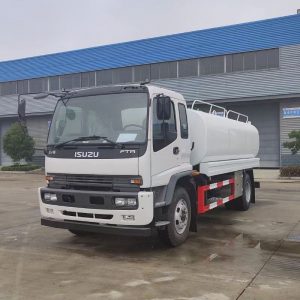Table of Contents
ToggleRoad Sweeper Trucks: The Guardians of Clean Streets
Road sweeper trucks might not bask in the limelight like sleek sports cars or towering semis, but they are the unsung heroes of our urban landscapes. These mechanical custodians work tirelessly, ensuring our streets remain clean, safe, and visually appealing. Ever wondered what goes into making these engineering marvels? Or how they’ve evolved from simple broom carts to sophisticated machines? Pull up a chair, because we’re about to embark on a sweeping journey through the fascinating world of road sweeper trucks!
What is a Road Sweeper Truck?
At its core, a road sweeper truck is a specialized vehicle designed to keep streets, highways, and public spaces free from debris, dirt, and litter. Imagine a gigantic vacuum cleaner rolling down the street, methodically picking up everything from fallen leaves to discarded fast-food wrappers. Yet, their role extends beyond mere cleanliness—they are pivotal in maintaining public health and safety by reducing pollutants and preventing accidents.

The Evolution of Road Sweeper Trucks
Early Designs and Concepts
The history of road sweeping dates back to the 19th century, a time when bustling cities were grappling with increasing amounts of waste. The earliest sweepers were rudimentary, often horse-drawn carts equipped with rotating brushes. These brushes would sweep debris toward the curb, where workers would collect it manually. While effective for the era, this process was labor-intensive and time-consuming, relying heavily on human effort.
Modern Innovations
Fast forward to the present day, and road sweeper trucks have transformed into high-tech machines. Thanks to advancements in technology, today’s sweepers boast features like GPS systems that optimize cleaning routes and advanced suction mechanisms capable of handling everything from light dust to heavy debris. Some even come equipped with water jets to suppress dust, making them not only efficient but also environmentally friendly. It’s a stark contrast to the humble beginnings of horse-drawn sweepers, showcasing how far we’ve come in our quest for cleaner streets.
How Road Sweeper Trucks Work
Key Components
Delving into the mechanics of a road sweeper truck reveals a fascinating array of components working in harmony. At its heart is a powerful engine that drives several key parts: rotating brushes, a vacuum system, and debris storage containers. Each component plays an essential role in ensuring thorough cleaning. The brushes dislodge dirt and debris, the vacuum system sucks it up, and the storage containers hold it until disposal. It’s a finely tuned dance of engineering precision.
The Cleaning Process
The cleaning process itself is a symphony of mechanical movements. As the truck trundles along the road, side brushes extend outward, sweeping debris toward the center of the vehicle. Then, the powerful vacuum system takes over, sucking up the litter and depositing it into a storage container. This entire operation is akin to a well-choreographed ballet, where each move is deliberate and purposeful, all aimed at leaving the road spotless.
Types of Road Sweeper Trucks
Mechanical Broom Sweepers
Mechanical broom sweepers are the traditional workhorses of the road sweeping world. They employ spinning brushes to sweep debris into a collection area. Despite their simple design, they are incredibly effective for rough surfaces and larger debris. Picture them as the robust, no-nonsense cleaners of the street-sweeping realm—reliable and efficient, even in the toughest conditions.
Vacuum Sweepers
Vacuum sweepers represent a more modern approach to road cleaning, utilizing suction to pick up debris. These machines are ideal for urban environments where dust and smaller particles are prevalent. Think of them as the quiet custodians, gently whisking away dirt without causing a fuss. Their ability to clean thoroughly and silently makes them a popular choice in city settings.
Regenerative Air Sweepers
Among the most innovative types are regenerative air sweepers. These machines use a blast of air to dislodge debris, which is then sucked up by a vacuum. They are highly efficient and capable of handling a wide variety of waste types, making them versatile for different environments. Imagine them as the multitaskers of the sweeping world, adaptable and effective in any situation.
Benefits of Using Road Sweeper Trucks
Road sweeper trucks do more than just maintain cleanliness; they significantly contribute to the overall well-being of urban environments. By actively removing debris, these trucks help prevent accidents caused by road obstructions or slippery surfaces. Imagine driving down a road littered with leaves after a rainstorm—slippery, right? Sweepers ensure that such hazards are minimized, enhancing road safety for everyone.
Moreover, they play a crucial role in reducing pollution. By picking up dust, dirt, and other pollutants, they prevent these particles from becoming airborne and contributing to air pollution. This is particularly important in urban areas where air quality is already a concern. Additionally, by keeping storm drains clear of debris, road sweepers help prevent water pollution, ensuring that rainwater flows freely and doesn’t carry harmful substances into rivers and lakes.
Environmental Impact
While road sweepers contribute positively to environmental cleanliness, they also come with their own set of environmental considerations. Traditionally, these machines have relied on fossil fuels, contributing to carbon emissions. However, the industry is seeing a shift towards more sustainable practices. The development of electric and hybrid road sweepers is paving the way for greener cities, significantly reducing the carbon footprint of these essential vehicles.
Another environmental aspect to consider is the disposal of collected debris. Responsible waste management practices must be in place to ensure that collected materials are recycled or disposed of properly, minimizing the impact on landfills and the environment. This not only involves the municipal services but also requires cooperation from the public to ensure that waste is sorted and disposed of correctly.
Challenges and Maintenance
Operating a road sweeper truck isn’t without its challenges. These machines face constant wear and tear due to their demanding job. Regular maintenance is crucial to ensure they perform optimally. This includes replacing worn brushes, maintaining the vacuum system, and ensuring the engine runs smoothly. Neglecting these maintenance routines can lead to reduced efficiency and increased operational costs.
Moreover, the operators of these machines need to be well-trained. Navigating busy streets while ensuring thorough cleaning requires skill and precision. Training programs are essential to ensure operators can handle the machines effectively, maximizing their potential and ensuring safety on the roads.
The Future of Road Sweeping Technology
The future of road sweeper trucks is bright, with technological advancements paving the way for even more efficient and effective solutions. One exciting development is the integration of artificial intelligence and automation. Imagine self-driving sweepers that can operate efficiently without human intervention. These machines would be equipped with sensors and cameras, allowing them to navigate complex urban landscapes with ease.
Additionally, the use of data analytics can further optimize cleaning routes and schedules. By analyzing traffic patterns and debris accumulation, cities can deploy sweepers more strategically, ensuring that resources are used efficiently and effectively. This not only improves cleanliness but also reduces operational costs and environmental impact.
Conclusion
So there you have it, a deep dive into the world of road sweeper trucks. These unsung heroes of the road work tirelessly behind the scenes to keep our streets clean, safe, and beautiful. As technology continues to advance, the future holds exciting possibilities for these essential machines, promising cleaner and more sustainable urban environments. Whether it’s through cutting-edge technology or eco-friendly innovations, road sweeper trucks are poised to sweep us into a cleaner tomorrow.







